Existing User Log In
New User Registration
Register for a free account to gain full access to the VGChartz Network and join our thriving community.



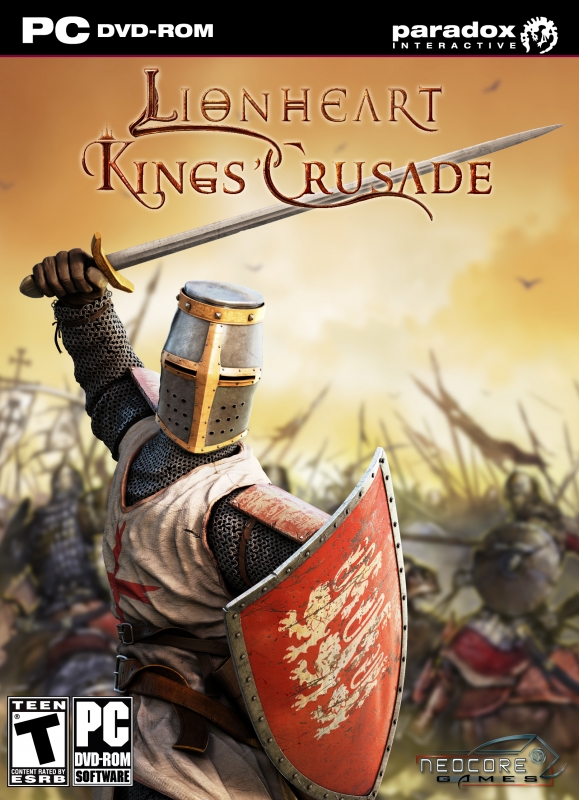

America - Front


America - Back

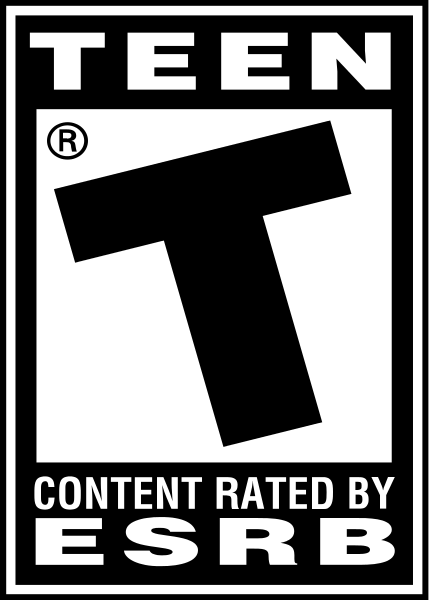

Neocore Games
Strategy
 10/08/10 Paradox Interactive
10/08/10 Paradox Interactive  (Add Date)
(Add Date) 10/15/10 Paradox Interactive
10/15/10 Paradox Interactive
| Owners: | 2 | |
| Favorite: | 0 | |
| Tracked: | 0 | |
| Wishlist: | 0 | |
| Now Playing: | 0 | |
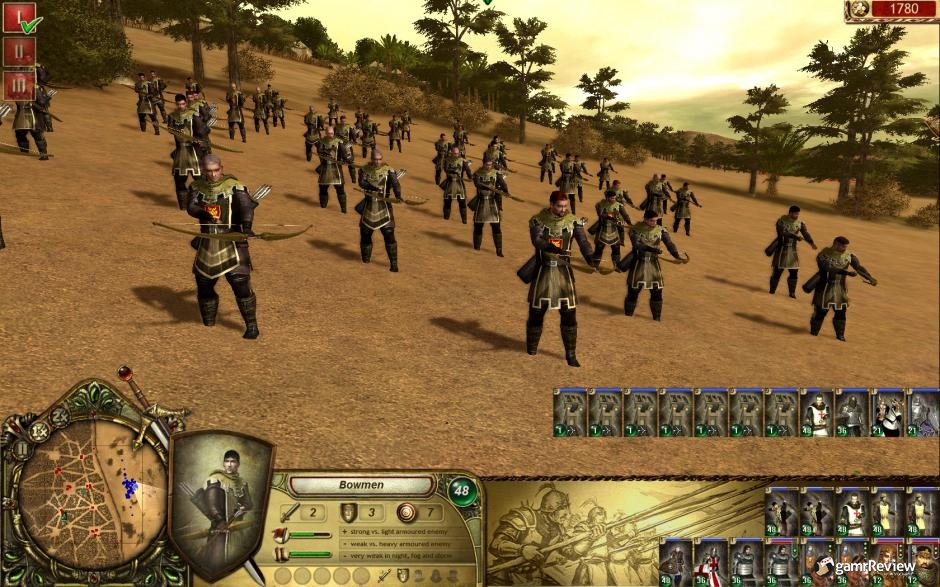
Set during the third crusade, Lionheart: King’s Crusade is a highly fictionalized rendition of the most famous conflict between Medieval Europe and the then rising Middle Eastern Caliphates for control of Jerusalem. The game is intended to pit the two overpowering personalities of the Age: King Richard of England, and Saladin, Sultan of Egypt and Syria, in separate campaigns to conquer the entire Holy Land.
The first impulse one has is to compare this game to Total War. Certainly, the battles play out in more or less the same way, but the similarities end there. Unlike Total War games, In Lionheart there is little to do on the campaign map other than repairing and optimizing your armies and selecting your next target for expansion; there’s no nation building and there is only anecdotal diplomacy. In Total War games you are required to garrison and protect all your provinces from sudden attacks by opportunistic neighbors or troublesome rebels. In Lionheart there is no such danger; once you secure a territory in battle, it won’t be contested again, and you can move your armies piecemeal to the next target on your road of conquest.
Of course, if you decide not to include any significant strategic territorial dynamics in your game you have to substitute it with something else, or your game won’t cut it in the saturated modern RTS market. Lionheart’s gamble is to allow an enormous level of customization and tweaking of the combat units. There are so many ways to upgrade or twist the attributes of units that even in the story mode campaign the chances of two games ever being the same is slim. Experience points, purchased upgrades, factional rewards, and relics are all factors that alter the nature of your armies.
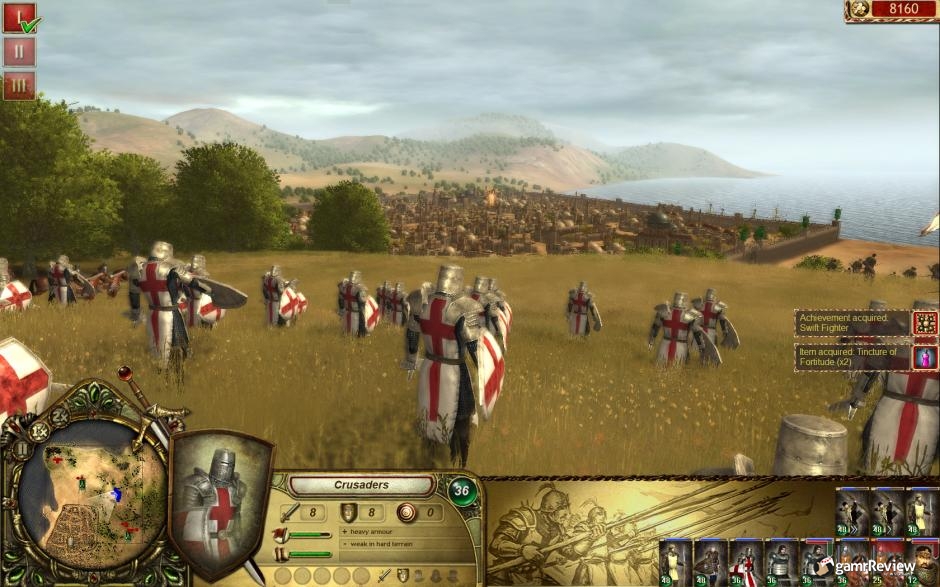
Perhaps the most interesting of these roads to customization is provided by the accumulation of experience. Units that engage more in combat accumulate experience points faster than less active units. These experience points can later be used to increase your attack, defense, morale, speed or stamina stats. In time, this allows you to evolve highly specialized units custom-fitted to your play style.
In my case, I favored a strategy centered on strong archery barrages to soften up enemies and then a fulminating light cavalry sweep to finish off the remnants. I used the infantry and heavy cavalry mostly to provide a defensive cover for the other two. Since I was far more often on the offensive than on the defensive, after some time, thanks to the experience accumulation system, I ended with very elite cavalry and archery units while my infantry and heavy cavalry remained fairly standard fare.
As would be expected, the experience system is not the only way to tweak the attributes of your troops. You can also use the booty obtained from missions to pay for special training for your troops to elevate either your defensive or attack values. You can also improve aspects such as morale, healing ability and overall strength by adding a few specialists such as healers, priests, or captains to a unit. Furthermore, your booty from a successful conquest usually includes a few military gadgets (such as better armor, special weapons, potions, and even poisons) that can be added to your arsenal. Do note that many of these arsenal additions can only be assigned to troops of a certain level of experience.
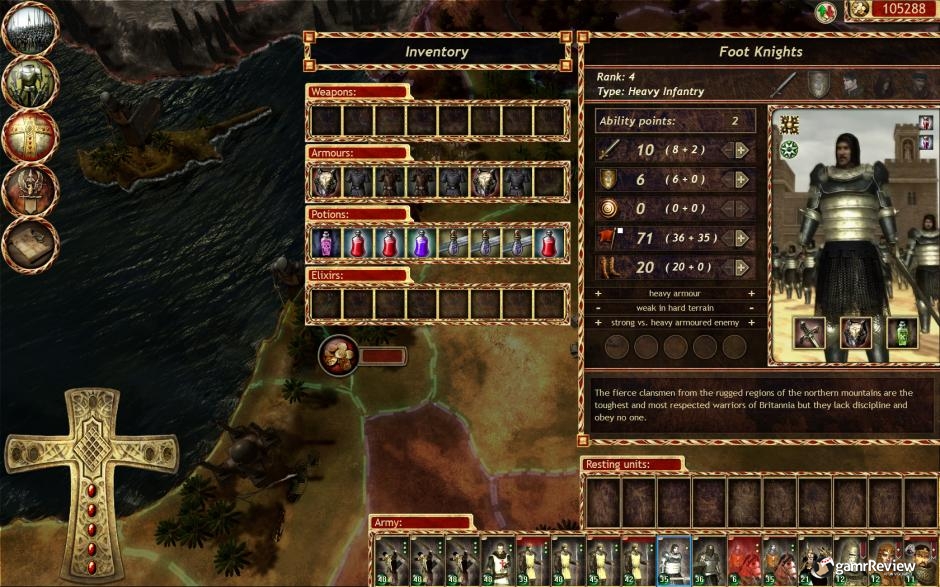
The end result of all this customization is that unlike most other RTS games, in Lionheart individual units really matter. Whereas on most other RTS games using units as sacrificial lambs for the sake of expediency or calculated cost is common fare, in Lionheart you’re not likely to ever do so. Units aren’t only expensive to hire and replenish, but some of their attributes take so much time to build that losing one of them actually hurts and can severely imbalance your forces. In this game, if one of your units is endangered with annihilation you may feel the visceral need to shift your forces to rescue them, even if this means postponing the mission goal. That is not only a more realistic depiction of the hard choices of real combat, but also a very unique flavor of RTS gaming.
The Crusader armies in real history were a motley assemblage of parties with different interests and agendas that agreed on the vague goal of recovering the Holy Land for Christianity and then on little else. Factional strife and intrigue were just as important a factor in each major European setback as were the Arab troops facing them. These internal struggles are depicted in the Crusade part of the campaign of the game as four major parties that try to influence the way you go about each conquest. The four factions are the Catholic Church, the Holy Roman Empire, The French Crown, and the Knights Templars. Each faction is willing to offer you aid and rewards (such as new unit types) for fulfilling their whims in combat. It’s a nice touch of realism that adds greater depth and variety to the title.
Regarding the actual combat experience, Lionheart has a few interesting refinements as well as most of the standard elements of the genre. There are no individual soldiers in this game; each regiment moves together as a unit. This allows for the toggling of some combat formations and a very chess-like style of maneuvering on the battlefield. The usual dynamic of rock-paper-scissors is used to establish superiority between troop types (for instance, archers tend to crush pikemen, while pikemen are efficient at killing cavalry, which excel at trampling archers). An interesting element is that you can often use some of your cash reserves to improve your chances in battle by hiring spies to spread demoralizing news through the enemy camp, or to poison wells or to bribe some rival troops to switch sides.

The AI is decently challenging in this game. Enemy troops don’t just come at you in mindless waves as in other RTS games. In Lionheart AI forces actually react to your actions on the battlefield, staging a retreat when under heavy fire, occasionally attempting a flanking maneuver or even repositioning to block your path. Skirmishes seem to have ‘black hole properties’ sucking up all nearby forces into them. Badly battered units (both AI and yours) can break into panic and route, causing a drop in morale in all surrounding forces. Routing forces can be rallied by heroes (and sometimes on their own) to recover their composure and return to the battlefield. Obviously, the AI is still very far from reaching the refinement of a human opponent, but it still counts as one of the brighter aspects of the game.
The visual and sound components of Lionheart are decently polished and competitive, but still not at the fore of the genre. The visual style is gritty and somber, with an abundance of brown in the color palette. Scenarios tend to look barren, windy, and generally miserable places to conduct war in. There is a respectable amount of effort placed in the appearance and attire of each soldier type, though unfortunately the same exact look is cloned to depict all of the individuals of the same type. If you zoom in during a skirmish you will see the soldiers actually swinging their weapons as if locked in combat, though sadly they are often aiming at thin air. The voice acting is fine, getting the message across believably, although sometimes the accents aren’t so convincing. The most prominent instances of dialogue are found when the factional representatives try to push their agendas on you, and even then the briefing is short. There is a rich variety of combat background noises that help create the proper atmosphere during battle. The music score is martial and simplistic and generally blends back into the background when appropriate.
There are a few criticisms that need to be pointed out about the game. As with most modern releases of PC games, Lionheart: King’s Crusade is fraught with small bugs at the time of release. Most prominent of all is a bug that makes the game suddenly crash and return you to the desktop. That crashing bug is made all the more painful because of another peculiarity of the game; you can only save between missions and not during them. This may have been intended to add more realism and relevance to in-game actions, but has become a bit of a nightmare when combined with that particular bug. Another issue was that the game did not sport an active multiplayer option at the time of release. It has recently been added, but there aren’t all that many different scenarios available to play, and in general doesn’t rate all that highly when compared to the multiplayer options in similar titles.
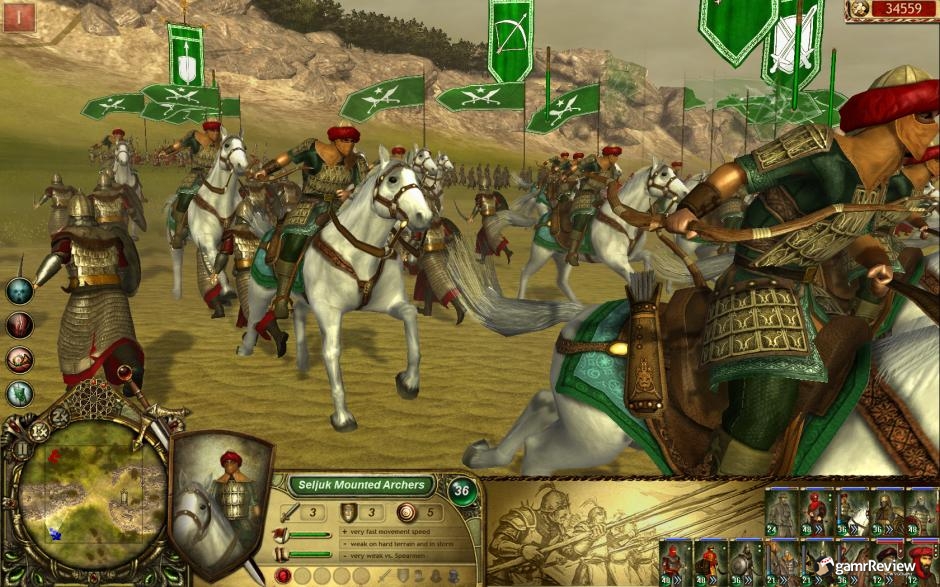
Lionheart’s: King’s Crusade is an interesting alternative retelling of the crusades that still manages to pay homage to several historic realities of the actual event. It is also an entertaining and enjoyable gaming experience, with the occasional captivating and epic moment, particularly during the campaign. The many variables allow for a dynamic and very unique gaming experience, and no two run-throughs will ever be the same. However, the game is a little weak on the multiplayer side of things and suffers from a few annoying bugs that somewhat tarnish the image of the product.










| Total Sales |
0.00m
Japan |
0.00m
NA |
0.01m
Europe |
0.00m
Others |
0.01m
Total |
| 1 | n/a | n/a | 17 | 6 | 23 |
| 2 | n/a | n/a | 24 | 9 | 33 |
| 3 | n/a | n/a | 57 | 21 | 78 |
| 4 | n/a | n/a | 39 | 14 | 53 |
| 5 | n/a | n/a | 66 | 23 | 89 |
| 6 | n/a | n/a | 17 | 6 | 23 |
| 7 | n/a | n/a | 14 | 5 | 19 |
| 8 | n/a | n/a | 18 | 5 | 23 |
| 9 | n/a | n/a | 13 | 3 | 16 |
| 10 | n/a | n/a | 73 | 18 | 91 |
|
|
|